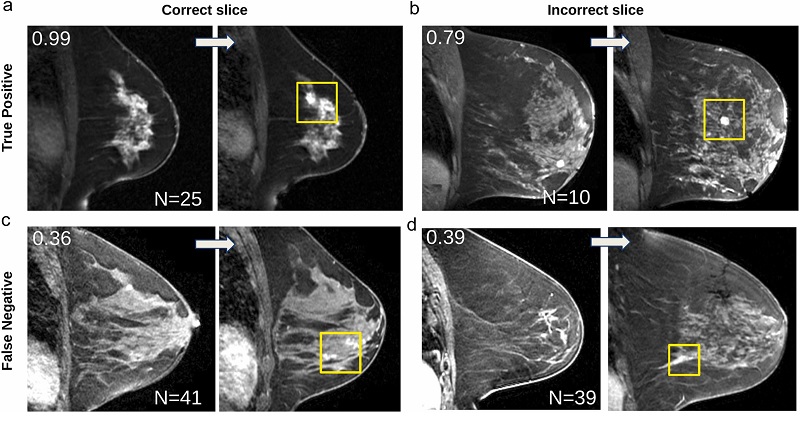AI Algorithm Detects 30% Of Breast Cancers Missed on MRI Scans
Posted on 07 Nov 2024

In the United States, more than 500,000 women participate in supplemental breast magnetic resonance imaging (MRI) screenings each year. These women are considered to be at an elevated risk for breast cancer. Following a negative screening mammogram, supplemental MRI can uncover an additional 15 to 18 cancers per 1,000 high-risk women. Thanks to the higher sensitivity of MRI compared to mammography, it may be feasible to estimate an individual's risk of developing cancer within the upcoming year based on their most recent negative screening MRI. Researchers have proposed that current MRI examinations contain valuable information regarding the outcome of the next annual screening. Based on this hypothesis, they have developed and assessed an artificial intelligence (AI) algorithm to identify breast cancer in MRI scans up to one year earlier than when radiologists typically detect it, potentially improving early detection among high-risk women.
A research team from The City College of New York (New York, NY, USA) fine-tuned a convolutional neural network (CNN) AI model, which was pre-trained on breast MRI data, utilizing a retrospective dataset that included 3,029 MRI scans from 910 patients. This dataset contained 115 cancers diagnosed within a year of a negative MRI result. The model aimed to identify these cancers to predict the development of cancer as much as one year in advance. The network was fine-tuned and validated using a 10-fold cross-validation method. The mean age of the patients involved was 52 years, ranging from 18 to 88 years, with an average follow-up duration of 4.3 years, spanning from 1 to 12 years.
The AI was able to detect cancers a year earlier, achieving an area under the ROC curve of 0.72. A retrospective review by a radiologist of the top 10% highest risk MRIs, as ranked by the AI, could have boosted early detection by up to 30%. The radiologist identified a visual marker for biopsy-proven cancers in 83 MRI scans from the previous year. The AI algorithm pinpointed the anatomical regions where cancer would be detected in 66 cases, with agreement between the two methods in 54 instances. Based on the findings published in Academic Radiology, the researchers concluded that their innovative AI-assisted re-evaluation of "benign" breast scans holds promise for enhancing early breast cancer detection through MRI. As datasets expand and image quality continues to improve, they anticipate that this method will become increasingly influential.








 Guided Devices.jpg)





